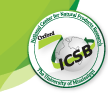Document Type
Oral Presentation
Location
Oxford Convention Center, 102 Ed Perry Boulevard Oxford, MS 38655
Event Website
https://oxfordicsb.org/
Start Date
17-4-2024 1:00 PM
End Date
17-4-2024 1:30 PM
Description
The Modernization of Cosmetics Regulation Act of 2022 (MoCRA) became effective December 29th, 2023. MoCRA is the most significant expansion of FDA’s authority to regulate cosmetics since the Federal Food, Drug, and Cosmetic (FD&C) Act was enacted in 1938. MoCRA expands the FDA's rulemaking and enforcement authority over cosmetics and creates new compliance obligations for manufacturers. There are six key areas of the legislation including Facility Registration, Product & Ingredient Listing, Safety Substantiation, Cosmetics Labeling, and Adverse Event Reporting and Record Keeping. Each of these areas has significant implications for manufacturers and the ingredients commonly found in cosmetics. Given the ubiquitous presence of botanical and other naturally occurring substances found in cosmetics, these ingredients will certainly be scrutinized as well. Questions remain regarding how compliance will be assessed and enforced. As an example, manufacturers will be required to maintain records that substantiate the safety of the ingredients. Although the legislation requires that qualified experts evaluate ingredient safety substantiation, does that suggest a performance vs. prescriptive approach would be required? As for adverse event reporting, new definition for “Serious Adverse Event Reports (SAERs)” will be applied that substantially change the way adverse events will be coded and SAERs will be flagged as compared to other FDA regulated products including dietary supplement. If a botanical is found “unsafe” in cosmetics would that impact their use in dietary supplements? Lastly, fragrance and flavor safety are specifically called out in the legislation, especially as to their role in allegedly contributing to SAERs. Many of these MoCRA related questions may ultimately be addressed with the help of best practices development in conjunction with authoritative third parties. These and other questions will be discussed and addressed in the session.
Recommended Citation
Kingston, Rick, "Impact of MoCRA When Assessing Botanical Safety" (2024). Oxford ICSB. 21.
https://egrove.olemiss.edu/icsb/2024_ICSB/Schedule/21
Publication Date
April 2024
Accessibility Status
Searchable text
Included in
Impact of MoCRA When Assessing Botanical Safety
Oxford Convention Center, 102 Ed Perry Boulevard Oxford, MS 38655
The Modernization of Cosmetics Regulation Act of 2022 (MoCRA) became effective December 29th, 2023. MoCRA is the most significant expansion of FDA’s authority to regulate cosmetics since the Federal Food, Drug, and Cosmetic (FD&C) Act was enacted in 1938. MoCRA expands the FDA's rulemaking and enforcement authority over cosmetics and creates new compliance obligations for manufacturers. There are six key areas of the legislation including Facility Registration, Product & Ingredient Listing, Safety Substantiation, Cosmetics Labeling, and Adverse Event Reporting and Record Keeping. Each of these areas has significant implications for manufacturers and the ingredients commonly found in cosmetics. Given the ubiquitous presence of botanical and other naturally occurring substances found in cosmetics, these ingredients will certainly be scrutinized as well. Questions remain regarding how compliance will be assessed and enforced. As an example, manufacturers will be required to maintain records that substantiate the safety of the ingredients. Although the legislation requires that qualified experts evaluate ingredient safety substantiation, does that suggest a performance vs. prescriptive approach would be required? As for adverse event reporting, new definition for “Serious Adverse Event Reports (SAERs)” will be applied that substantially change the way adverse events will be coded and SAERs will be flagged as compared to other FDA regulated products including dietary supplement. If a botanical is found “unsafe” in cosmetics would that impact their use in dietary supplements? Lastly, fragrance and flavor safety are specifically called out in the legislation, especially as to their role in allegedly contributing to SAERs. Many of these MoCRA related questions may ultimately be addressed with the help of best practices development in conjunction with authoritative third parties. These and other questions will be discussed and addressed in the session.
https://egrove.olemiss.edu/icsb/2024_ICSB/Schedule/21


